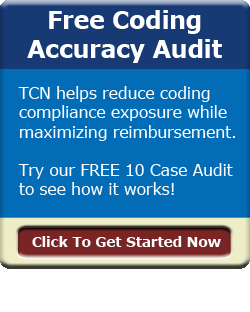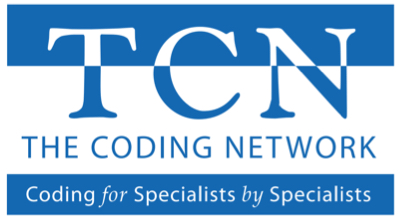Ophthalmology Coding
Ophthalmologists are an extreme example of specialization. They spend nearly a decade in training and their entire professional career in the care of an organ the size of a marble or a gumball! Some are subspecialists in retina or glaucoma or oculoplastics or oculo-oncology or pediatric ophthalmology. Physicians specialize because it is virtually impossible for one person to be an expert in everything. To excel at something, one must do it every day. For the very same reason, we require our coders to focus on a surgical subspecialty such as ophthalmology. Each of our certified coders has a minimum of three years of single-specialty surgical coding experience and then must pass our very demanding proficiency test in that particular surgical coding subspecialty. Unlike the basic certification tests which are largely multiple choice questions, ours are actual de-identified operative reports from our medical school faculty specialists. The few who pass must demonstrate an accuracy rate of at least 95% on our ongoing random Quality Assurance/Continuous Accuracy Improvement reviews in order to continue working for The Coding Network. Compare this approach to quality to the majority of our competitors, both domestic and offshore in third-world countries; their business model is to offer would-be coders a vocational “trade school” experience designed to prepare them for the certification test. Once they pass, these newly certified green coders are assigned to code for you. This is the equivalent of having an intern perform brain surgery!
Many ophthalmologists will tell you that “nobody knows better than me what I did in the operating room…. so nobody can code it better than me.” The first part of that sentence is correct, but does not logically lead to the correct conclusion. Coding is dynamic; there are nearly 400 CPT codes in the ophthalmic surgery section, including 7 different “unlisted procedure” codes, plus almost 60 special ophthalmology evaluation and management codes. The 2010 NCCI data set includes 24,060 new active pairs and 19,083 terminated pairs (237 were terminated retroactively to 1/1/09) and 869 modifier changes, and 5,299 swapped pairs? That doesn’t even touch the thousands of annual and quarterly changes to the CPT and ICD-9 coding systems. Precise surgical coding requires a substantial time commitment to learn the rules, edits, surgical coding regulations, and documentation requirements. It is not the intuitive experience many opthalmologists believe it to be. Like ophthalmology, coding is a career of its own.
Ophthalmology Coding Background
- Directed by a nationally known surgical coding expert.
- Decades of experience in surgical coding for academic and private ophthalmology practices.
- Team of certified ophthalmology coders.
Ophthalmology Coding Need
- Well trained ophthalmology surgery and ophthalmology evaluation and management coders are difficult to find, expensive to recruit, and their ongoing training can be quite costly.
- Few certified coders have the extensive ophthalmology coding experience and specialty knowledge possessed by The Coding Network’s staff of ophthalmology coding experts.
- Most ophthalmologists see a disproportionate share of senior citizens. There is no such thing as “a second chance” after submitting Medicare and insurance claims. They must be accurate the first time. The legal and financial risks of upcoding or undervaluation are enormous.
- Ophthalmology coding covers one of the most complex portions of the CPT paradigm and presents procedural, modifier, and diagnostic coding challenges.
- Coder turnover creates cash flow peaks and valleys.
- In smaller practices, full time certified coders are expensive overhead items who often fill their expensive time with other less-challenging non-coding tasks.
Surgical Coding Solution
- The Coding Network’s ophthalmology coders are “black belts” who all live-and-work in the United States.
- 2-to-3 business day coding turnaround via overnight courier, fax, or the Internet. We can dial into your electronic medical record or transcription service’s archives.
- HIPAA compliance and no documents are sent off-shore.
- Our per-case pricing model is inexpensive and our team of coders stabilizes cash flow. You only pay for what you need. Never worry about revenue cycle “whiplash” caused by absences, vacations, family leaves, etc.
- No monthly minimum gives you total control.
- Volume-driven pricing makes us an ideal ongoing solution for practices of all sizes.
- Identification and feedback of documentation deficiencies at no additional cost.
- A practical and cost-effective solution for your surgical coding needs.
- No monthly minimums.
Services
- Temporary ophthalmology coding to cover vacations, medical leaves and employee turnover.
- Backlog coding resolution services.
- Coding accuracy and compliance audits with user friendly and educational report formats.
- Documentation training services with subspecialty workbooks..
- Coding “helpline” services.
- OIG and RAC audit defense.

Latest Blog Posts:
Coding Compliance Audits: Uncovering Deficiencies and Solutions
In an era where healthcare systems are intricately tied to digital platforms, meticulous coding accuracy cannot be a mere afterthought; it is an absolute necessity. Often overlooked, coding errors are the silent killers of compliance [...]
Outsourcing Medical Coding: The Key Advantages for Healthcare Providers
Amid the complex labyrinth of healthcare administration, one area stands as a beacon of efficiency and cost-effectiveness—outsourcing medical coding. It brings an exhaustive list of benefits ranging from unburdening clinicians, reducing compliance exposure, minimizing claim [...]
HCC Coding Compliance: Avoid Revenue Loss and Fines in Healthcare
Navigating the complex labyrinth of HCC coding is a daunting task for healthcare providers due to the frequent carrier changes to rules and regulations, and non-compliance could mean substantial revenue loss and hefty fines. In [...]
Medical Coding Audits: Ensure Accurate Clinical Documentation
Why Conduct a Medical Coding Audit Medical coding audits ensure accurate clinical documentation, improve revenue cycle management, minimize revenue loss and coding liability, and maintain compliance with industry regulations. Improved Accuracy of Clinical Documentation Accurate clinical documentation [...]




